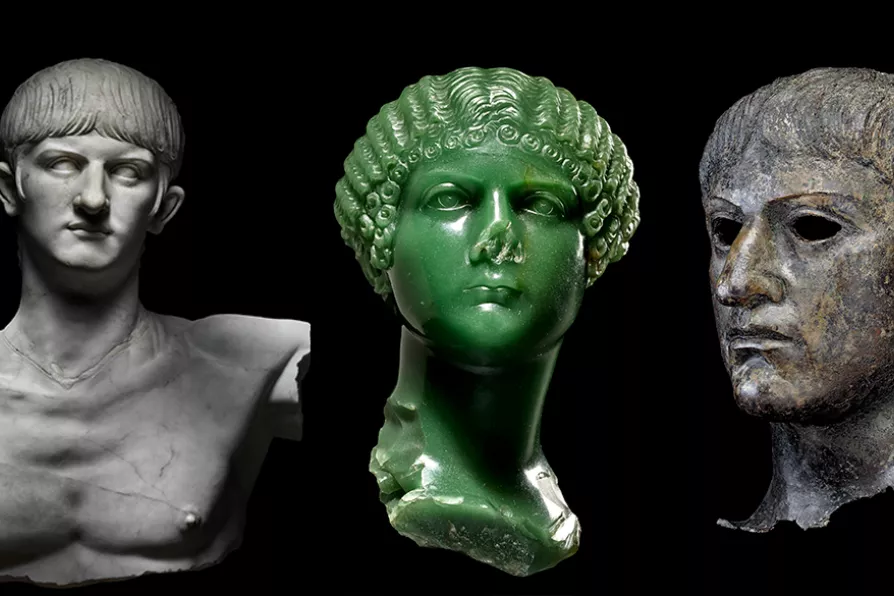Climate activist and writer JANE ROGERS introduces her new collection, Fire-ready, and examines the connection between life and fiction

 (L to R) Marble bust of Nero, around AD 55; miniature portrait of Nero’s mother, Agrippina the Younger, AD 37–9; head from a bronze statue of the emperor Nero, found in England, AD 54–61
(L to R) Marble bust of Nero, around AD 55; miniature portrait of Nero’s mother, Agrippina the Younger, AD 37–9; head from a bronze statue of the emperor Nero, found in England, AD 54–61
Nero: The Man Behind the Myth
British Museum, London
THE PREMISE behind this well put-together but somewhat lightweight exhibition is that the Emperor Nero, famous for supposedly “fiddling while Rome burns,” was a much better leader than he has traditionally been made out to be.
Various antiquities are assembled to provide a context in buttressing the argument that while the fifth Roman emperor had his failings, in his time he was a well-regarded populist and that it was his poor relationship with the elites that led to his bad reputation.
The written commentary threading through the exhibition accentuates the positives of Nero’s 14-year reign from AD54-68, including diplomatic skills that led to a treaty with the the Parthians, the Roman empire’s greatest enemies, and his successful suppression of Boudica’s rebellion in Britain. He followed that up by appointing officials who were more conciliatory towards the natives.
Back home there were tax reforms, building projects, improvements in food supply and Nero’s support for the theatre, previously seen as a no-go area for emperors. As for the great fire of Rome, he was not even there when it broke out, and he led efforts to rebuild the city afterwards.
Powerful as these arguments may be, however, it’s difficult to find any support for them in the exhibits themselves. While that’s perhaps unsurprising at this distance in time, the truth is that the objects don’t really tell the story. Essentially they’re just pretty pictures to go with the words.
And for every positive thought about Nero there are plenty of negatives to match. He did, after all, ascend to power after ordering the death of his mother and he executed his first wife.
His brutal treatment of citizens who stepped out of line was as ruthless as any Roman emperor’s and his accommodations with the Parthians and the Britons came about only after initial military failings. After the blaze in Rome he cynically blamed Christians, ordering mass executions.
While all of these actions need to be placed in the context of the times, they hardly suggest that Nero would have been a man adored by his people. Trying to make that argument within the confines of an exhibition is an ambitious undertaking and it has not really come off.
Runs until October 24, box office: britishmuseum.org

STEVE ANDREW enjoys an account of the many communities that flourished independently of and in resistance to the empires of old

NICK MATTHEWS previews a landmark book launch taking place in Leicester next weekend

GORDON PARSONS meditates on the appetite of contemporary audiences for the obscene cruelty of Shakespeare’s Roman nightmare

PETER MASON is enthralled by an assembly of objects, ancient and modern, that have lain in the mud of London’s river










